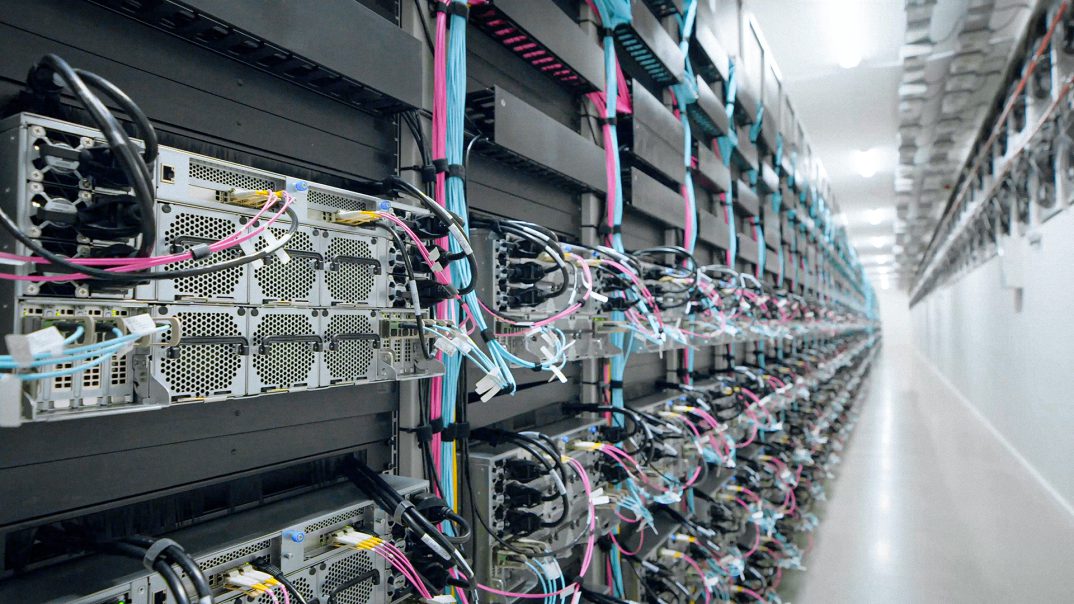In the race to build and deploy AI-enabled products, money talks. Below the surface of every chatbot, image generator, or trading platform is an astonishing level of infrastructure investment required.
These cost constraints are unfortunately pushing the AI industry further towards consolidation, and the transformative potential of GenAI is at risk of becoming concentrated among the players with huge resources. This is all the more reason why before it is too late, we must make a concerted effort to ensure that the future of GenAI is one that fosters fair competition and openness to drive the greatest innovation.
A prohibitive cost environment
It’s an unavoidable reality that deep learning models need to be trained on data – lots of data. This data needs to be stored in massive servers and processed quickly using the most powerful graphic processing unit (GPU) chips in a meticulously controlled data centre environment. The servers, the chips and data centres can be bought outright or rented from cloud companies and data providers.
If this all sounds very expensive, it’s because it is. And the needs are the same whether you’re a Fortune 100 company or a scrappy start up. To put it into perspective, OpenAI CEO Sam Altman has stated that his ChatGPT-4 cost over $100mn to train. This is more than many would-be founders could ever dream of raising in a funding round.
The established players possess a clear advantage. For instance, Alphabet’s capital expenditure rose to $13bn according to its quarterly earnings in July – almost double the $6.9bn spent in the same period in 2023. This increase reflects its investment in infrastructure such as data centres, new chips to train and run models, and the development of its own GenAI products.
Chipmaker Nvidia recently estimated that total demand for GPUs might reach $2tn, including $1-tn from data centres. Now, it’s not just about getting your hands on the latest chips but also securing the necessary infrastructure to house them and maximise their performance. As more companies enter the market, gaining access becomes even more challenging.
While the GenAI industry is in its infancy, it’s unsurprising that those with deepest pockets have a head start through investment and M&A. For smaller businesses, this market concentration means that while the opportunities to make money are expanding, those to test, experiment and scale are shrinking.
Democratisation fosters innovation
There is a real danger that we are watching the GenAI industry follow the same path of online advertising, cloud computing and mobile networks, where a handful of players control most of the market and the only measure of success is the bottom line.
Competition breeds innovation in any market, and GenAI is no different. Democratisation must be prioritised, while ethical and transparent behaviour cannot take a back seat to profits.
The biggest opportunity to achieve this lies in efforts to grow a more diverse ecosystem that pushes investment towards innovative startups, researchers and universities. Allowing them to grow their businesses responsibly, securing access to hardware and infrastructure but also providing breathing room to ensure factors like environmental impact become central to the value proposition.
It’s heartening to see that there are already players in the market making efforts to stop GenAI innovation from becoming the purview of just a few. In keeping with the spirit of democratisation, companies are creating dedicated platforms from which to offer startups access to chips, allowing them to scale up their proof of concepts or products. Those companies are demonstrating accountability, but it doesn’t have to be purely altruistic; it helps them keep close ties with developments in the AI world, while fostering partnerships with those set to shape the next phase of innovation.
Creating and maintaining a marketplace where startups have access to compute power will result in a thriving ecosystem of businesses that communally reap the benefits of innovation. With the right stewardship, democratised GenAI will help ensure the benefits of this technology are held in the hands of many, not just a few.




